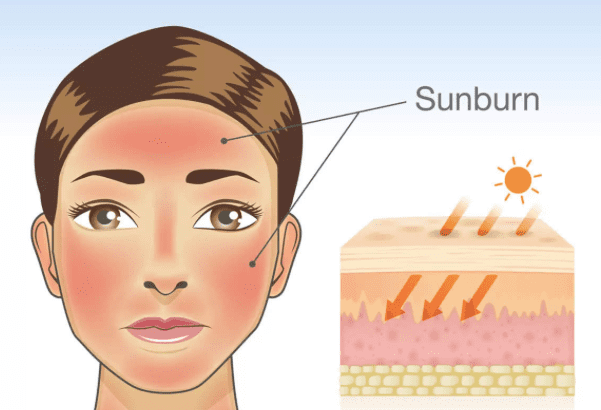There is no question that the environment can directly affect your skin. Your genetic make-up, skin type, and amount of sun exposure are just a few of the variables that will determine how it will effect you specifically. Many people’s skin is prone to becoming oilier in the summer and flakier in the winter. Dermatologists attribute this to variations in certain meteorological conditions like temperature and humidity levels. However, you should keep your complexion consistent if your skin reacts to a quick change in temperature. This means that in order to maintain the health of your skin as the weather changes, you may need to modify your skincare regimen and try new techniques.
What the Heat Does to Your Skin

You may experience a change in your skin’s texture from normal to oily during warmer months, making breakouts more likely. Higher temperatures cause the skin to produce more oil, making it appear greasy. When wearing makeup, oily skin might give you the “melting” look, which is bad when you’re trying to mingle. However, the danger of developing long-term issues from excessive sun exposure is worse than this. Sun spots can lead to uneven skin tone and frequently develop on the face, arms, or back, which are exposed to the sun the most. Fortunately, there are therapeutic alternatives available if you experience discolouration from sun exposure, including chemical peels or laser treatments, both of which can alleviate the problem.
Last but not least, skin cancer continues to be the most prevalent type of cancer in the USA, and sun exposure is a major contributor to skin cancer. Thankfully, it can be avoided and is very treatable if you do contract it. You may learn more about Mohs Micrographic Surgery, a common kind of treatment for skin cancer, by going here. You might need to modify your skincare routine to include cleansing products to prevent breakouts and discolouration in order to protect your skin from the changing weather. In order to stay hydrated, you might also need to switch to a light moisturiser and drink a lot of water. Keep in mind that dehydration can cause your skin to become dry, itchy, and in some situations, it can lead to the development of dry patches.
What the Cold Does to Your Skin
The chilly autumn and winter temperatures can dry out the skin, leaving it flaky and sensitive. Your skin loses moisture at very cold temperatures, low humidity, and strong winds. Using central heating indoors is ineffective since hot air is also low in moisture, which dries out and itches your skin. Additionally, the extra dead skin can clog your pores and lead to acne, which is a problem you probably thought only teenagers had and don’t want to deal with as an adult. It’s interesting how few people recognise that the warm foods we crave during the cold months may also be causing skin outbreaks.
A diet strong in carbohydrates puts your hormonal balance at risk, which may result in acne or poor skin quality. There is no one-size-fits-all approach, but you may assist protect your skin from the harsh winter weather by changing your skincare regimen to include lighter creams and moisturisers on dry patches, gentler cleansers to remove dead skin, and exfoliators to remove dead skin. The goal is to stop the skin barrier from rupturing as a result of drastic temperature changes.
Hope it helps!


